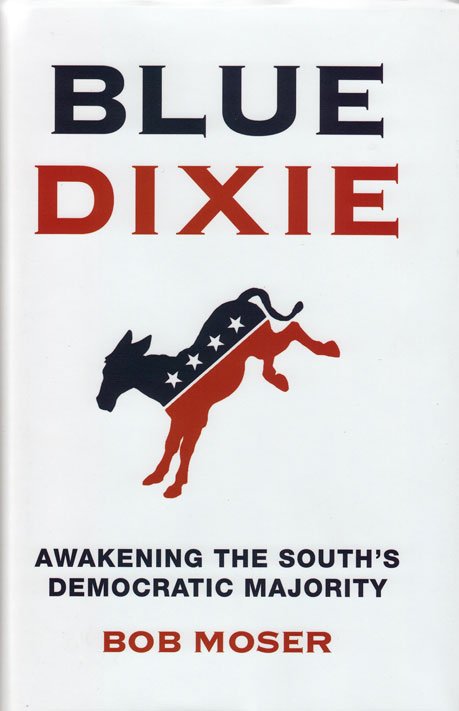A couple of years ago, Thomas Schaller wrote a book, "Whistling Past Dixie," that got a lot of people up in arms. The book's thesis was nicely summed up by its subtitle: "How Democrats Can Win Without the South." Democrats all over the land of Dixie took his charge personally. Gnashing of teeth ensued, and southerners made vows of retribution all over. Now comes Bob Moser, who takes aim at Schaller with "Blue Dixie: Awakening the South's Democratic Majority" (Times, $25, 2008). Moser, as you might guess, believes the South is full of Democrats whom the party has ignored.
Both books end up giving bad advice.
More than any other geographic region of the country, journalists, political scientists and historians love to take the states of the old Confederacy and the people who inhabit those states, lump them into a category called "southerners," and write books as if the states and its people can be described as a whole. Schaller gets it wrong because there are districts and states in the South that can elect Democrats. Moser gets it wrong because there are a lot more districts and a lot more states that are anything but friendly to Democrats.
Moser's book is the more worrisome of the two because he puts forth a plan for how Democrats can "retake" the South. He calls it "economic populism." He never attaches a coherent or comprehensive set of public policies to the rubric, but throughout the book, he makes clear it is all about class warfare. We come across such declarations as the need to "translate the South's economic populist tradition into a forward-looking, class-based politics."
"On one side stands the corporate interests of the nation, its moneyed institutions, its aggregations of wealth and capital, and on the other side stands the unnumbered throng which gave a name to the Democratic Party," Moser writes.
While Moser spends a good number of pages trying to make the case for the South's "economic populist tradition," he never convinces. All his favorite southern populist politicians enjoyed their heyday before the Dixiecrat rebellion in 1948. Then the southland changed, though Moser apparently believes candidates can skip over all the ensuing cultural and economic transformations and engage in class warfare as if it was the dawn of the New Deal. He defends his proposal with his own passion, a few irrelevant polls and selective interviews with a handful of political activists. This is called campaign strategy by anecdote.
I knew I was in for trouble when I came across this observation: "You would be hard pressed to find a southerner who couldn't give you a quick summation of what the Republican Party stands for. Ask about the Democrats and Southerners would proffer a thousand different theories about what the party was all about, with a high incidence of blank, silent stares."
I can only speak for Mississippi, but after sitting through countless focus groups and analyzing countless polls, I can assure the reader there is no question but that white voters in our state are very clear and very consistent about what they think of the Democratic Party. And it's not pretty.
The trouble with Moser's book is that he never makes an empirical case that white southerners would support his kind of candidate. While he does offer some poll data that suggest southerners support health-care reform and more regulation of businesses, he never ties these poll data to choices voters make in an election. People who have never run a campaign make this mistake all the time. They take some random poll data or a random anecdotal story and think it automatically translates into how someone will vote. Voters are far more complicated than that.
The other problem Moser never adequately confronts is this thing called "cultural issues." While he beats around the bush a lot, Moser never offers candidates a way to get around the positions the national Democratic Party has on abortion, gay marriage, religion, guns, immigration, affirmative action and the like that just don't go over all that well down here.
Nevertheless, Moser's answer is to wage what we call a wedge-based campaign. He is of the school that a campaign is won when you divide the electorate and pit one group against the other (i.e., in a populist campaign, the "haves" vs. the "have nots"), though he never proves his approach would be successful. Besides, I think it's a morally dubious strategy anyway. Why not run a campaign that tries to bring people together, rather than divide them?
In the end, Moser throws in the towel and simply declares that candidates "need to move left on issues like health care, corporate regulation and taxation, and anti-poverty initiatives," and that "the party's leaders will have to wrench their eyes away from the latest polling data and devise bold proposals on a contemporary set of moral issues." This is called campaign strategy by assertion.
Bob Moser is right to remind people that Democrats can still get elected in the South. After that, his book takes Democrats down the wrong road.



Comments
Use the comment form below to begin a discussion about this content.